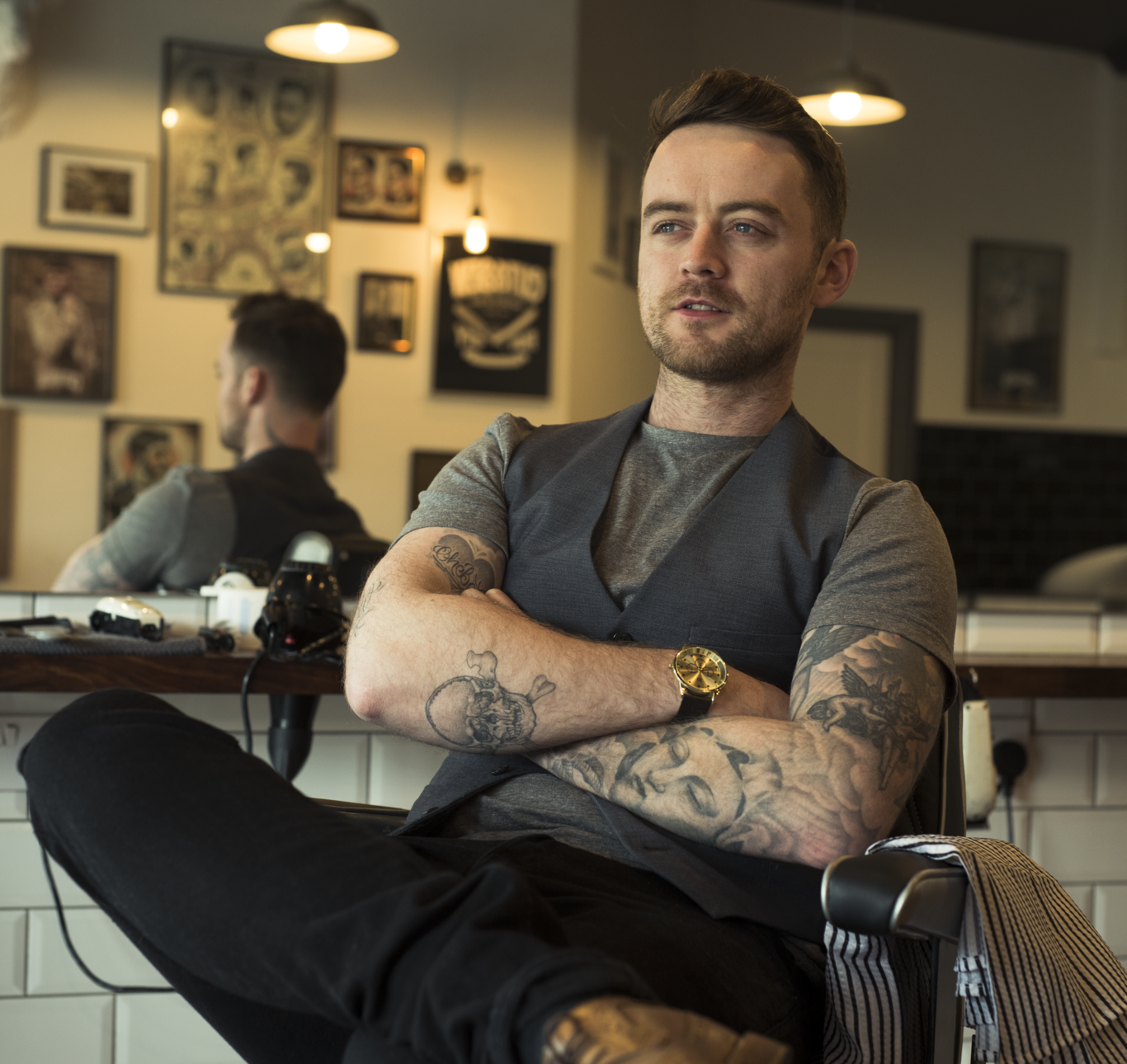'I left school when I was 15 - I was more attracted to making money than doing exams'
Sean Bryan, owner of Cut and Sew barbers, also talks about why he still works like an apprentice.
DUBLIN BARBERSHOP CHAIN Cut and Sew will soon celebrate its fifth year in operation.
Owner Sean Bryan first started the business as a month-long pop-up venture in the basement of graffiti supplies shop All City Records in Temple Bar.
Today, he manages three Cut and Sew outlets in the capital, a sister shop called BlindEye, a clothing brand, runs training courses and employs 20 people – including his mother.
The chain has also partnered with sporting brand Puma and has worked with Dyson.
As part of our weekly question-and-answer series, we spoke to Bryan about starting a ‘fake’ apprenticeship, the trouble with hiring too many friends and why he’d like to be better behind the desk.
Here’s what he had to say:
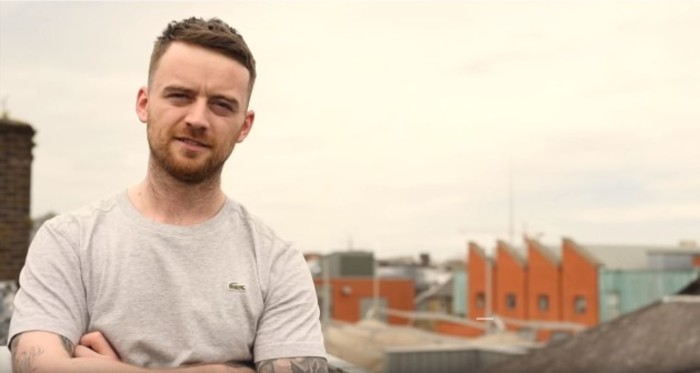 Cut and Sew's Sean Bryan
Cut and Sew's Sean Bryan
What was your earliest or childhood ambition?
It was probably to play for Man United. I played for Joey’s in Sallynoggin at the ‘mini world cups’. When we moved to England when I was 10, I thought I could go and play in Old Trafford.
I got into barbering in a roundabout way. I left school after only doing my Junior Cert. School wasn’t for me – I was more attracted to making money than doing well in exams.
I did two years as an apprentice carpenter only to learn that I wasn’t registered with Fás. I had no job, no career and freaked out. It was hard to get another apprenticeship back then.
A friend of mine said they’d get me a Saturday job in Tony and Guy hairdressers in Blackrock, which was quite prestigious and high-end.
I made tea and coffee and swept the floors. They knew I was good so they offered me an apprenticeship as a hairdresser.
They don’t let you cut hair for about a year, so I practiced on my brothers and best friends and that’s how I knew I liked cutting hair and the social aspect of it.
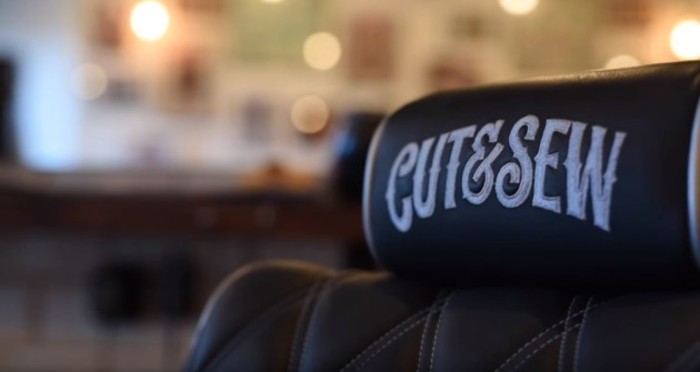
What’s the worst job/task you’ve ever had to do?
Before I started the ‘fake’ carpenter apprenticeship, I sold the Evening Herald newspaper, the late edition. I had to sell 50 newspapers four nights a week and I got £200.
It was so embarrassing. There used to be this smelly old guy who’d pick me and six other lads up in the van. He’d dropped each of us off to sell the papers for two or three hours, wind, rain or snow.
What’s the biggest risk you’ve ever taken?
Opening the second Cut and Sew shop. It’s on Wellington Quay, directly opposite another really well-known barbers, Sam’s, which has been in the business for 80 years.
The first shop was only really open a year and a half. It was going well and I was able to see money steadily coming in. I just went, “Fuck this, I want another shop.” Everyone told me it was madness.
I’d saved up and drew out a sketch of the shop I wanted. I had seen this barbers in San Diego called Mister Brown’s. They had this gorgeous, antique pool table. That’s what I wanted – I wanted a social club, not an Xbox or a TV playing sports – I think that’s cheap and tacky.
I did a lot of the fit-out work myself and paid for things as I went along. The chairs were about €1,000, €2,000 each, so I got a loan from the credit union.
It was a big risk leaving the first shop and taking on a unit that was three times the size of it. I was kind of shitting myself, but it allowed me to do shop three and four. I know the ‘algorithm’ of how it works now.
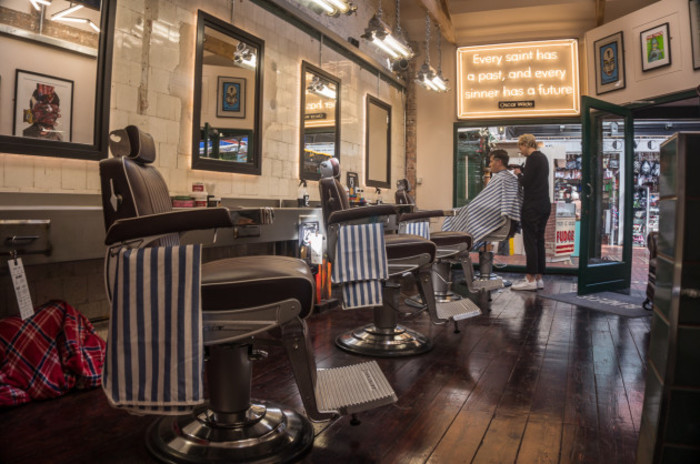 BlindEye Barbershop
BlindEye Barbershop
What has been your biggest mistake to date and what did you learn from it?
Maybe hiring the wrong people. Barbering is a very personal thing. If you go to Chopped, which I love, you just get your wrap or your salad bowl. You don’t physically touch the person.
When you go to a barbershop, you shake hands, you’re touching their head, people are vulnerable. It’s a very close-knit thing.
If you have a regular place you go to, you keep going back if you feel a connection with the person cutting your hair.
I’ve hired people who have had a bad effect on a shop, which just spreads to other staff. Now I only hire people when I’ve got to meet them a couple of times.
What’s the one work skill you wish you had?
I wish I was better at spreadsheets. My accountant’s heart does be broken. I could probably be a bit more organised as well.
I only cut four days a week now and I do two days a week in the office. Every morning I’m on the laptop doing social media and the clothing brand.
As of next year, I’m going to step back and only cut three days because I want to focus more on running the business.
I still want to cut hair, that’s my main skill, but to run four shops – maybe five – I would have to be better behind the desk and not just behind the chair.
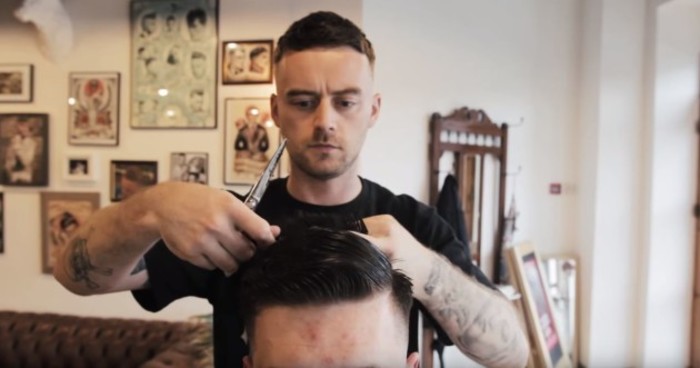
What bad work (or business) habit have you had to kick?
Hiring family and friends. I do have family and friends that work for me, but I’m kind of at my limit now.
I obviously want to look after all my friends and would love to employ them, but I don’t want to be in a situation where I have to be ‘the boss’. It has caused me a bit of upset.
I don’t look at myself as the Donald Trump of Cut and Sew. I like to think of myself as an equal. I still sweep the floor, I still clean the toilet, I still go and pick up the towels – I literally do the same jobs as the apprentice.
What’s the one piece of advice you would give to someone starting out in your industry?
Stick to what you believe in, go for your own vision and don’t try to be somebody else. I’ve seen about 10 young guys opening up barbershops in Ireland that look like a replica of their heroes’. It doesn’t really show their true vision of what their brand or shop will be.
I’ve always tried to stay true to my vision. I think we’re contemporary with a touch of old-school. We don’t have the classic photos on the wall of the American Crew models or pictures of Schillaci at Italia 90.
We have photos of guys that visit the shops and photos of present and past staff – it’s important to remember the people who helped build the company.
Who is your business hero?
I have a couple of friends who have inspired me. One is producer and DJ Krystal Klear. We grew up doing graffiti together as teenagers.
The other is Maser, the artist. He has done a lot for Ireland and helped me out years ago when I got my first graffiti commission. They’ve been my business heroes for their work ethic. They don’t ever stop. They’re so proactive.
